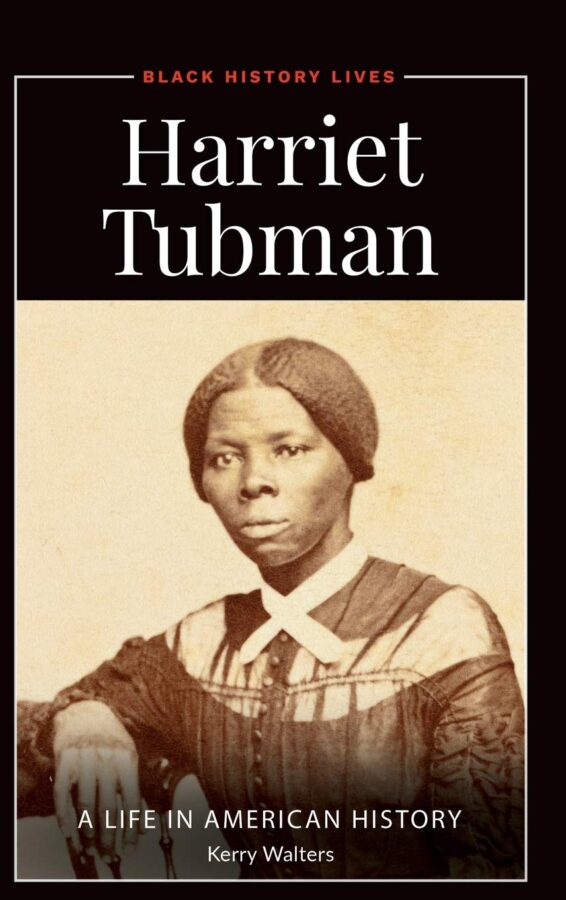Harriet Tubman: A Life in American History by Kerry Walters. Rowman & Littlefield, 2022. Paper, ISBN: 978-1440855689. $30.00.
 Throughout the nineteenth and early-twentieth-centuries, Harriet Tubman was undoubtedly one of the most influential abolitionists and women’s rights activists. Her historical experience, as demonstrated by recent debates over replacing Andrew Jackson with Tubman’s image on the twenty-dollar bill, remains evident today.
Throughout the nineteenth and early-twentieth-centuries, Harriet Tubman was undoubtedly one of the most influential abolitionists and women’s rights activists. Her historical experience, as demonstrated by recent debates over replacing Andrew Jackson with Tubman’s image on the twenty-dollar bill, remains evident today.
Understandably, most Tubman biographies concentrate on the abolitionist’s bravery and sacrifices, chronicling her unquestionably exceptional efforts to fundamentally reframe American society. However, as Kerry Walters masterfully notes in Harriet Tubman: A Life in American History, what also deserves attention is the personal story of Harriet Tubman and the many people connected to her life story. Walters, building upon the scholarship of others, does an exceptional job incorporating the personal histories of Tubman, her family, and various friends in ways that add historical depth to the well-known figure.
For instance, Walters notes that some of Tubman’s antebellum excursions to liberate bondspeople centered on her desire to free her enslaved and freed relatives who remained in the South (82-83). By highlighting Tubman’s unwavering familial bonds, which the institution of slavery sought to destroy, Walters illustrates that Tubman’s inspiring actions were more personal than some conversations—academic and public—may allow.
Another strength of the work is that Walters structures each chapter to detail various national-scale historical events, including the passage of the Fugitive Slave Law of 1850, with concise and straightforward prose. Each time, Walters clearly and succinctly examines the multiple complex factors that led up to the historical event in a way that diverse audiences will find appealing and helpful. After laying out the various events, Walters seamlessly and skillfully situates Tubman and numerous other people in her life within the stream of events. This approach allows readers to coherently contextualize how various people (especially Black people) lived through and directly experienced multiple defining moments in U.S. history during the nineteenth and early-twentieth centuries.
Thanks to Walter’s especially accessible prose, a wide range of potential readers should consider attaining a copy of this book. Rather than bog the book down with convoluted academic jargon, Walters crafts the manuscript in a manner that will at once reach a broad audience and inform more nuanced conversations—academic and public—on Harriet Tubman’s manifold contributions to U.S. history. Her personal life and bonds are integral to a better understanding of the Civil War and its era.
Harriet Tubman: A Life in American History is an excellent book. Walters does an exceptional job of interweaving Tubman’s diverse lived experiences into larger historical events. After reading it, I found myself revising my lecture notes to ensure that Tubman’s story—both public and personal—is centered in the narrative.
Holly Pinheiro, Jr., is Assistant Professor of History at Furman University. He is the author of the forthcoming The Families’ Civil War: Northern African American Soldiers and The Fight for Racial Justice, to be published by the University of Georgia Press.

